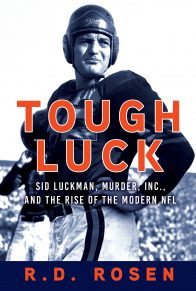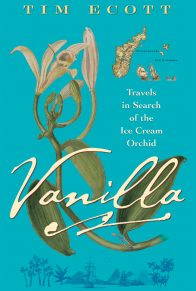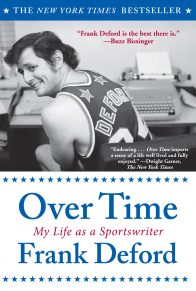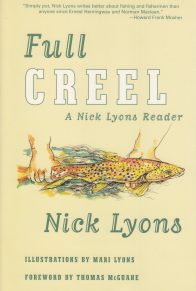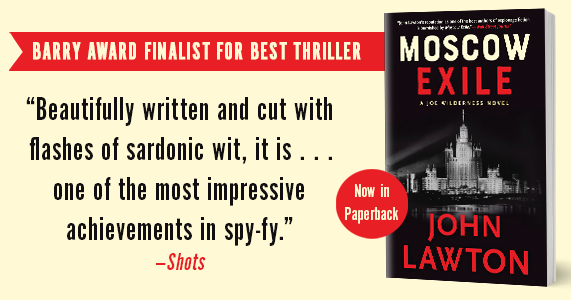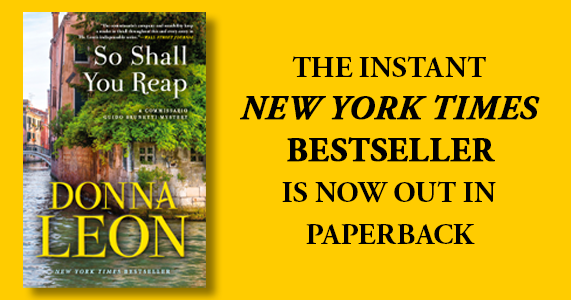The captain and his crew assembled our small group of divers in the yacht’s main saloon for a safety briefing. `This is deep water,’ he warned, inhaling deeply on the oversized Havana cigar almost permanently clamped between his teeth. `Don’t forget to monitor your depth gauges carefully. The face of the wall is enticing, it can make you want to go down and down. Remember the safety limit.’
`Cap’n Keith’, as we learned to call him, had none of the equipment fetishes of the average dive leade
r. In a torn, oil-stained T-shirt and baggy black swim shorts, he reminded me of an Action Man doll I had been given for Christmas when I was eight years old. A well-used knife, strapped to a muscular calf, and a faded US Navy buoyancy jacket completed the picture. If my Action Man had still been alive, and not the victim of a blazing parachuting accident from my bedroom window, he would have been every bit as faded around the edges as Cap’n Keith. This man had no need to prove himself underwater. At forty-eight, with five marriages down and one in prospect, he liked to break open a bottle of rum in the evening and talk about boats. Considering his history, women featured little in the conversation, but Hollywood couldn’t have created a better charter-boat captain.
Minutes after the briefing, we sat on the dive deck ready to enter the sea. Then, one by one, we fell forward off the transom into warm water and looked down. Nothing. The reef was gone. Thirty yards behind me the bows of the yacht were attached to the shallow mooring, but the stem diving platform had drifted over the edge of the perpendicular reef wall which plummeted into the abyss. Six thousand feet of blue water. At the edge of my vision I could just make out the wall, its sheer vertical face of coral plunging downwards, a mass of life hanging out over the depths, fish moving between its plant growth, and who knew what ready to swim up its face from the reaches of the ocean.
Bloody Bay Wall is one of the world’s unforgettable dives. Scarcely a hundred yards off the shores of Little Cayman in the Western Caribbean, the wall is covered by sponges, tunicates, black coral, golden crinoids, flame scallops and sea fins. Beneath, between, around and above these fixed growths, crabs, spiny lobsters, groupers, octopuses, turtles, eagle rays, mantas and sharks patrol the wall, plundering the larder of tinier creatures who shelter in its nooks and crannies.
I emptied my buoyancy jacket of air and sank slowly beneath the calm surface. Looking straight down was to immerse myself in a featureless indigo space. In one direction lay the wall, a reference point to gauge my speed of descent, but above and below there were only shades of blue, bright if I looked up and deepening to black if I looked down. This was the closest I could imagine to sky diving off the side of a cliff. Slower, no doubt, but giving the same sense of freedom, and removal from the normal sensory clues of gravity.
Head-first, I fell gently into this most seductive abyss. My depth gauge showed me to be over one hundred feet down and I halted, hung motionless, scanning the wall one moment then turning away to the big blue the next. Other divers hung above me or closer to the wall, their air bubbles a rising glittering trail to the surface, the bubbles small at first then expanding into hemispherical domes shimmering like mercury as they sought their own element. I swam to the wall and studied it close up.
Cayman waters are among the clearest in the world, flee from pollutants, washed by deep ocean swells and unaffected by rain water run-off from land or rivers. On the wall were sponges and sea fans bigger than I had seen in any other ocean. Cayman barrel sponges are rusty amphoras, up to six feet high and with mouths wider than the length of my arm. Up close their surface texture is as smooth as a young stag’s antlers at the beginning of autumn, covered with a fine velvet sheath of brown stubble. They were giant tubs fit for Ali Baba’s forty thieves.
Ascending the wall, the colours brightened as the spectrum of light was freed from its watery filter. Purple, orange, yellow, green and crimson showed through. Violet vase sponges as richly coloured and intricately woven as a medieval cardinal’s robes sprouted from the wall, and peering inside I would find marine worms or brittle stars spreading their tentacles across the brocade.
A week’s cruising off Little Cayman passed in a cycle of companionable dives interspersed with tempting meals, non-stop refreshments and spells on the sun deck. After dinner we would kit up again and seek out the shyer night dwellers of the shallow reef, sometimes peering over the lip of the wall into the abyss. The utter dark was broken only by our flashlights, and the blackness was a cocoon, tranquil and not at all alarming, as I had imagined it would be. On our return to the yacht, the chef would surprise us all with what she called a snack. Coconut cake with fruit slices, or ice cream and chocolate sauce with hot tea ensured a peaceful night’s sleep. Occasionally, a small bottle of rum would appear. The other divers, all strangers until we met, became good friends. They were relaxing company, knowledgeable about the ocean, and all shared a fondness for its endless mystery.
One evening, Captain Plaskett sat on deck giving me a tour of the starscape above the yacht. Some time close to midnight, he left me alone with my view of the Southern Cross and the Big Dipper, and I decided to sleep on deck. Several times during the night I awoke and stared at the stars as Little Cayman Diver rocked gently in the bay. Above me was the sheltering night sky, while below the hull the other space waited for me again.
Chapter One
Healing Waters
And, sure, the reverent eye must see
A Purpose in Liquidity.
We darkly know, by Faith we cry,
The Future is not Wholly Dry.
Rupert Brooke, `Heaven’
In Italy, a young woman once told me that learning to dive had mended her broken heart. In Spain, the chief executive of an international hotel company said that she dived because no one could telephone her underwater, or ask her to make any business decisions. In England, an engineer told me that he dived in order to experience flight, to escape the ties of gravity. His technical training had made him wish he could fly through the air, like a bird, but on reflection he had decided that to be a fish would be superior. In general, he reasoned, a bird cannot choose to stay motionless in the air. The bird may soar and glide above us seemingly unconstrained by gravity, but is dependent on the wind. The fish can choose to rest in one spot, even with a current flowing, and yet the fish can also move in three-dimensional space. In Switzerland, a man told me that he preferred to dive in alpine lakes rather than tropical seas. He said he found the marine life in warm waters too distracting; there was too much colour, too many things to take in. For him, the joy of diving was the opportunity to see inside himself. In order to examine his own character he needed to be in cold, dark, deep water where diving, just breathing underwater, was an end in itself. In Seychelles, a former professional motorcyclist who was paralysed from the waist down said that diving allowed him to forget his disability for a time. In Papua New Guinea there was an American who told me that diving was his church. What he saw underwater was a clear affirmation of God’s presence on earth and being in the sea was the only place he found complete solace. In California, a man told me that an hour underwater was better than any therapy session with a psychoanalyst. A Russian once said to me that, however hard he tried, he could never imagine any creature as weird as those he sometimes found underwater. Whatever space creatures he saw or read about in science fiction were a pale approximation of the variety of life forms he met in the sea.
Diving for pleasure is a young sport. Mass participation in the joy of swimming freely underwater, for no other reason than to be in the liquid world, has only been possible for fifty years. It is easier, cheaper, and safer to learn to dive than ever before. And yet, the prospect of immersion continues to inspire fear. To go underwater is simply not a natural activity. We enter a hostile element where the most basic life fuel, air, is unattainable. To survive, we must take it with us. To confront the liquid world, to enter the element and return to the air world, reinforces our will to live. It provokes joy and contentment in a world where people find less and less time to experience their own personal space.
Throughout history, the motive for going underwater has been to collect and retrieve objects of value, nutrition or decoration. Sponges, mother of pearl, shellfish, items of value lost overboard in a dock, have all been enough to make men and women plunge into the sea. The riches of the oceans have been legendary, and the secrets of the Seven Seas have inspired fantasy and fear. For over two thousand years the aim of going underwater has been simply to work, or to fight. Only recently have we sought out the marine world as free-swimming divers who seek nothing other than the pleasure of being underwater.
Childhood experiences stay with us, and colour our onward journey. Places and people embed themselves in our personality, forever remaining symbols of good or bad times which can be impossible to eradicate. Try as I might, I find it impossible to think fondly of Wales. I can’t apologize for it, the country remains for me the place where I began school, and hated it. Shortly afterwards, I contracted pneumonia, which left me a wheezing, bronchitic child forever unwell in the permanently, or so it seemed, damp climate. Fearing for the long-term health of my lungs, my parents were advised to take me abroad, and as my father was in the Army we were able to move to Malaya. There, I taught myself to swim, and spent every day at one of two pools, where my mother would leave my sister and me to amuse ourselves for hours on end.
I have tried to analyse my obsession with being underwater, and conclude that although everyone must draw their own inspiration from any activity, mine has to do with a return to the time when my life seemed totally in balance.
The contrast between Wales and Malaya could not have been more extreme. Just getting there involved a six-week journey by ship from Southampton, a prolonged holiday on which every day brought warmer weather and new adventures. Each stop at a new port was an education. Le Havre, where I saw a pissoir for the first time, Lisbon, where my mother wanted to buy a Siamese cat and smuggle it on board ship, and Gibraltar, where one of the ship’s passengers was bitten by a Barbary ape. Then the slow, hot crawl as the ship passed through the Suez Canal, followed by more days at sea before reaching Ceylon. There, I had my first entrancing sight of an Indian elephant. One morning at sea we sighted a pair of whales, and there were often dolphins to be seen from the deck in the early morning. These are my impressions of the long voyage, telescoped by boyhood memory.
Once in Malaya, I was transformed by the warmth of the tropical climate and an outdoor life. School was a mere half-day, and every afternoon was a time for adventure in the wild landscape around our house on a hill. There was very little television in that childhood; my only regular viewing was the weekly episodes of Flipper. Books were my education, and I would stay awake at night too scared to sleep after reading a few pages of Jim Corbett’s Man Eaters of Kumaon. In the daytime, giant spiders, scorpions and snakes were always to be found, and my friends and I would invade the jungle armed with sharpened bamboo poles in search of wild pigs. More importantly, I learned to swim. I became a fish.
We lived in Taiping, which was then a very small place, and up in the hills there was an old freshwater swimming pool carved out of the rocks which was filled by a natural stream. The water was always cool and I learnt to dive for coins, which glittered against the bottom of the deep, dark, diving pool. It was shaded by overhanging jungle and in the late afternoon we would listen to the sound of gibbons making their mournful whoop-whooping cry through the trees.
The years we spent in Malaya were a gilded time. My parents were young, and able to enjoy our company without the drudgery of housework or the irksome bills and paraphernalia of cold-climate living. This was the Sixties, and it was party time, but without the Sex, Drugs and Rock `n’ Roll. There were servants to do the chores, and an endless round of dinner parties and social events for which my parents could dress up, my father in regimental mess-kit with the smart red stripe down the legs of his trousers. The women, my mother included, had sets of matched pearls and bouffant hair styles, and lived lives like the glamorous creatures we saw in the short cinema films advertising Peter Stuyvesant cigarettes. People were all sun-tan and white teeth. In the middle of our stay, Father went away to fight in the jungle in Borneo, and we did not see him for six months. I had no thought for the horrors of jungle warfare, and his tales of giant snakes and centipedes in his tent held only excitement for an eight-year-old’s ears. When he returned he had grown a beard, an unheard-of indulgence for a British officer, permissible only because the constant humidity in the jungle had given him a skin infection which prevented him shaving. I remember the shock of meeting him at the airport, and my amazement that in spite of this transformation my mother was prepared to kiss him.
Sometimes at weekends we would travel to the coast and take a boat to some small islands, where I could swim in the warm sea. I found my first porcupine fish there, and caught it and placed it in a bucket where it inflated itself like a balloon, a mass of prickly spines with a small, round mouth and two eyes at one end. I let it go. On another occasion I was given a fishing rod, with which I swiftly caught a large horseshoe crab. It was a terrifying sight, like an armoured tank with a long tail protruding from its rear. I cried when I realized I had killed it. So many of my memories from that time are connected with wildlife, from monkeys and wild pigs in the jungle to fire-ants and snakes in the house, bats in caves and fish in the warm sea. Everything in nature was a new discovery, and I was outside all of the daylight hours. I kept scorpions in a jar for a time until I was told to throw them away. On our first night in one house, my mother found an enormous black spider on the wall above my bed. She covered it in DDT powder so copiously that the fumes brought her out in a severe allergic rash. The spider seemed unaffected, so she lifted the upright vacuum cleaner on to the wall and switched it on. The spider was duly sucked into the machine, but Mother feared that it might revive itself and somehow crawl out of the bag. Her solution was to throw the vacuum from the bedroom window on to the lawn below, much to the surprise of the gardener when he found it the following day.
After three years, we returned to Europe and I lost my love for swimming. We moved to Ireland and, although I was wanted on the school swimming team, the prospect of training in an open-air pool was uninspiring. The tedium of provincial life in a wet climate took over, and the years went by in varying shades of grey. It sometimes seems that we never recovered those carefree times near the Equator. But when I dive I am eight years old again, everything underwater a fresh object of enquiry. My parents are in their prime and I have everything I want from life without having to do anything about getting it. Perhaps that is where I return to when I breathe underwater.
Excerpted from Neutral Buoyancy by TIM ECOTT. Copyright © 2001 by Tim Ecott. Excerpted by permission. All rights reserved. No part of this excerpt may be reproduced or reprinted without permission in writing from the publisher.





